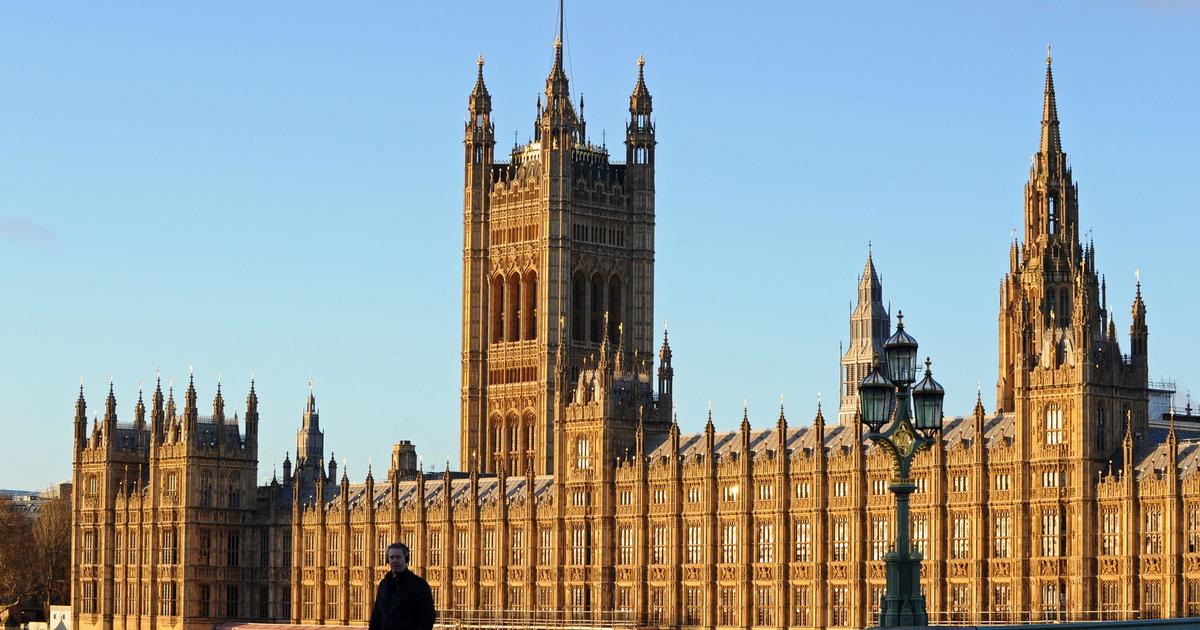Britain and the European Union have signed an interim free trade agreement that should avoid chaos in the New Year for international traders and bring a measure of certainty to companies after years of Brexit turmoil.
With just over a week to go until the UK’s final separation from the EU, the UK government said “the deal is closed”.
European Commission President Ursula von der Leyen said she was happy with the deal.
“At the end of a successful negotiation journey, I usually feel joy. But today I feel just enough satisfaction and, frankly speaking, relief. I know this is a difficult day for some, and for our friends in the UK, I mean: farewell is a sweet sadness, “von der Leyen told reporters.
UK Prime Minister Boris Johnson said the deal achieved what those who voted for Brexit were looking for.
“We have returned control of our laws and our destiny. We have returned control of every jot and tittle of our regulation in a way that is complete and unrestricted,” Johnson said in televised comments.
He stressed that, under the new agreement, Britain would remain close to Europe.
“We will be your friends, your allies, your supporters and, in fact, never let this be forgotten, your number one market. Because, although we have left the EU, this country will remain cultural, emotional, historical, strategic, geologically linked to Europe” Johnson continued.
The 500-page agreement should ensure that both sides can trade goods without tariffs or quotas. But despite the progress, the main aspects of the future relationship between the 27-nation bloc and its former member remain uncertain.
British and European parliaments are expected to vote on the agreement, although the latter may not happen until the United Kingdom leaves the EU’s economic embrace on January 1.
Months of tense and often impatient negotiations have gradually reduced the differences between the two sides to three main issues: rules of fair competition, mechanisms for resolving future disputes and fishing rights. The right of EU vessels to trawl in British waters remained the last obstacle before being resolved.
However, the main aspects of the future relationship between the 27-nation bloc and its former member remain unresolved.
Johnson insisted that the United Kingdom “would prosper enormously” even if no agreement was reached and the United Kingdom had to negotiate with the EU under the terms of the World Trade Organization. But his government acknowledged that a chaotic exit would likely cause a stalemate in Britain’s ports, temporary shortages of some products and increases in staple food prices.
The EU had long feared that Britain would undermine the bloc’s social, environmental and state aid rules after Brexit, becoming a low-regulation rival at the bloc’s door. Britain denies that it plans to institute weaker standards, but said that continuing to follow EU regulations would undermine its sovereignty.
An agreement was finally reached on the complicated issues of “a level playing field”. The economically minor but extremely symbolic issue of fish has come to an end, with EU maritime nations seeking to maintain access to the waters of the United Kingdom where they have been fishing for a long time and Britain insisting that it must exercise control as a ” independent coastal state “
Huge gaps on fishing were gradually closed over weeks of intense negotiations in Brussels, even as Johnson continued to insist that an exit without an agreement was a likely and satisfactory outcome for the nine months of negotiations on the future relationship between the EU and its members. former member.
It has been four and a half years since the British voted 52% -48% to leave the EU and – in the words of the Brexiteers’ campaign slogan – “take back control” of UK borders and laws.
It took more than three years of disputes before Britain left the bloc’s political structures on January 31. Detangling economies that were closely linked as part of the EU’s single market for goods and services took even longer.
The United Kingdom remained part of the single market and the customs union during an 11-month transition period after Brexit. As a result, many people by now will have noticed little impact from Brexit.
On January 1, the separation will begin to feel real. The new year will bring big changes, even with a trade agreement. Goods and people will no longer be able to move freely between the UK and its continental neighbors without border restrictions.
EU citizens will no longer be able to live and work in Britain without visas – although that does not apply to the more than 3 million who already do so – and the British can no longer work or automatically retire in EU nations. Exporters and importers face customs declarations, goods checks and other obstacles.
The UK’s border with the EU is already suffering from the new restrictions imposed on travelers from Britain to France and other European countries, due to a new variant of the coronavirus sweeping London and southern England. Thousands of trucks were stuck in traffic jams near Dover on Wednesday, waiting for their drivers to test for viruses so they could enter the Eurotunnel for France.
British supermarkets say the backlog will take days to resolve and that there may be a shortage of some fresh produce during the holiday.
Despite the agreement, there are still unanswered questions about large areas, including security cooperation between the UK and the bloc and access to the EU market for Britain’s huge financial services sector.
